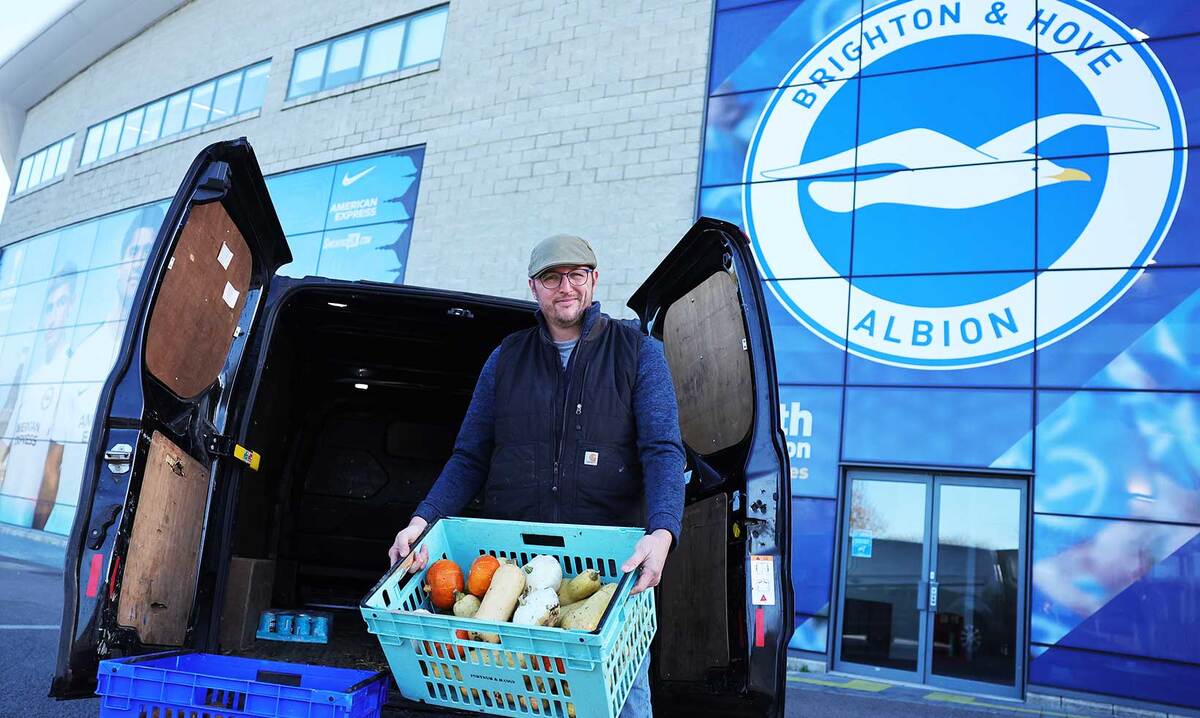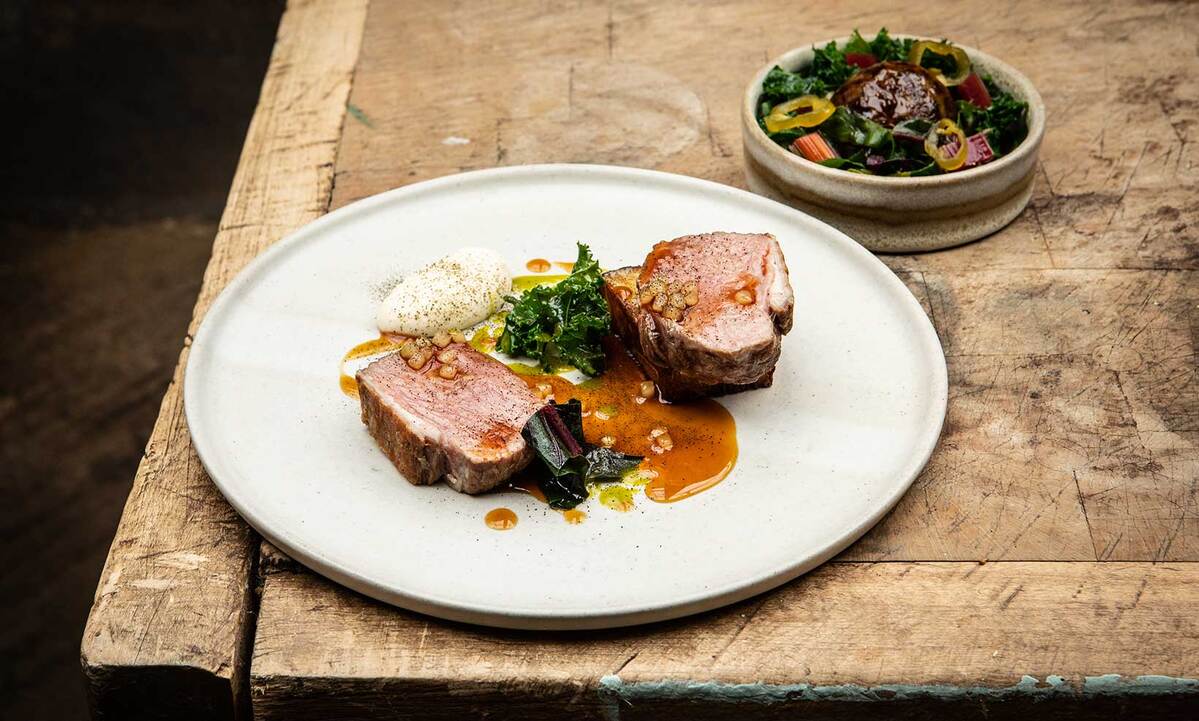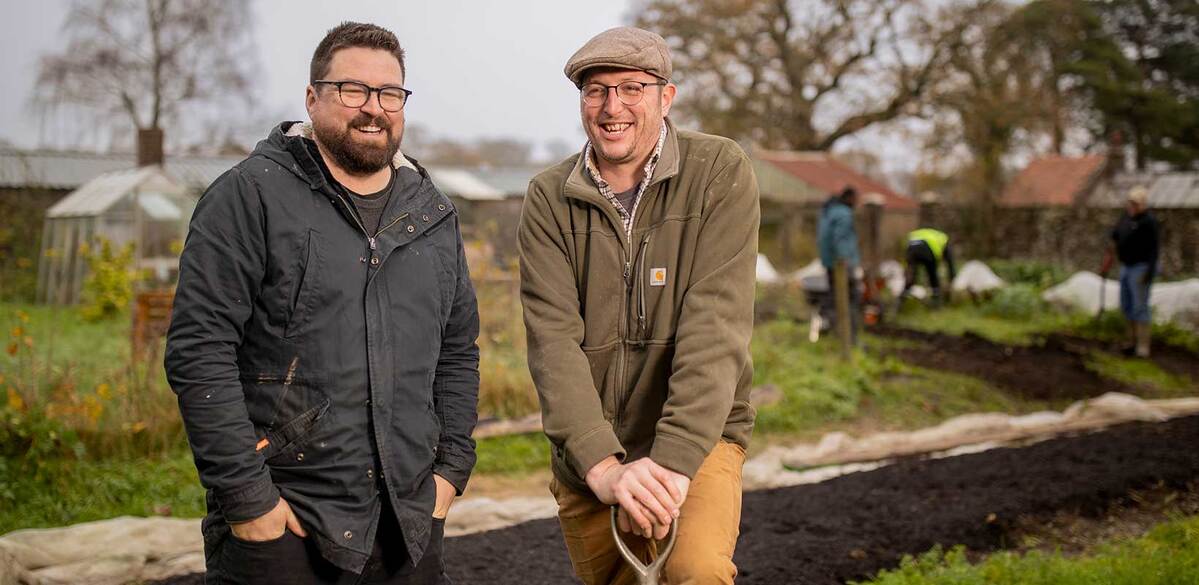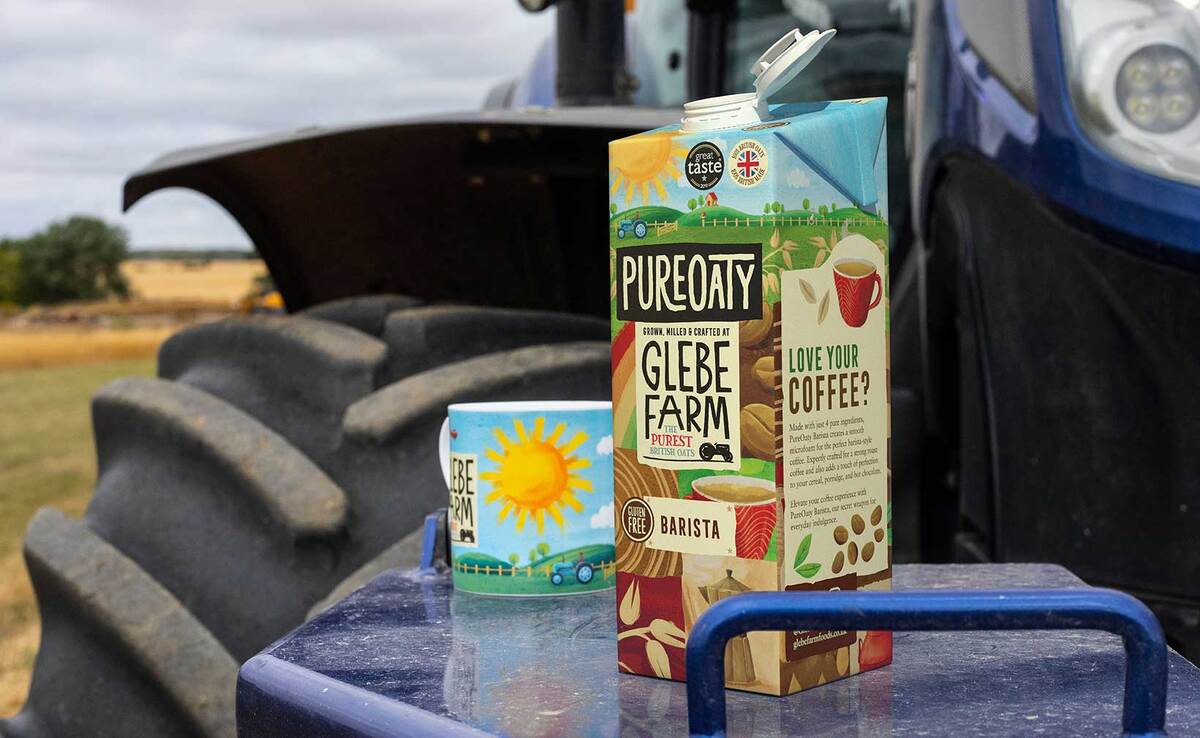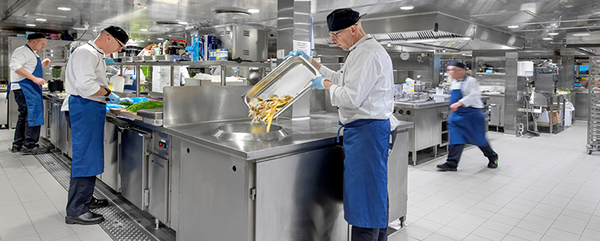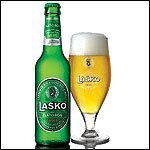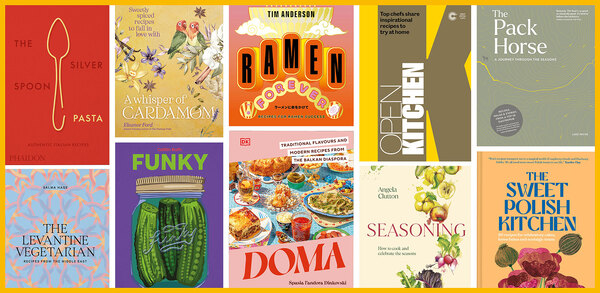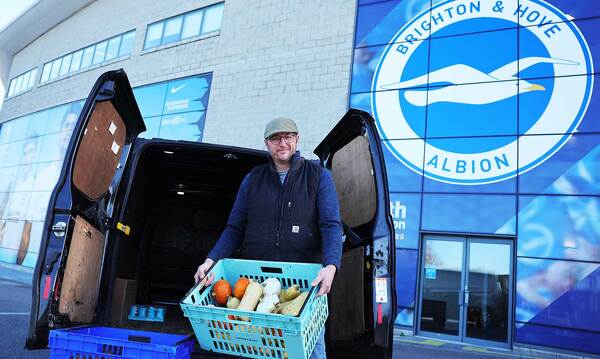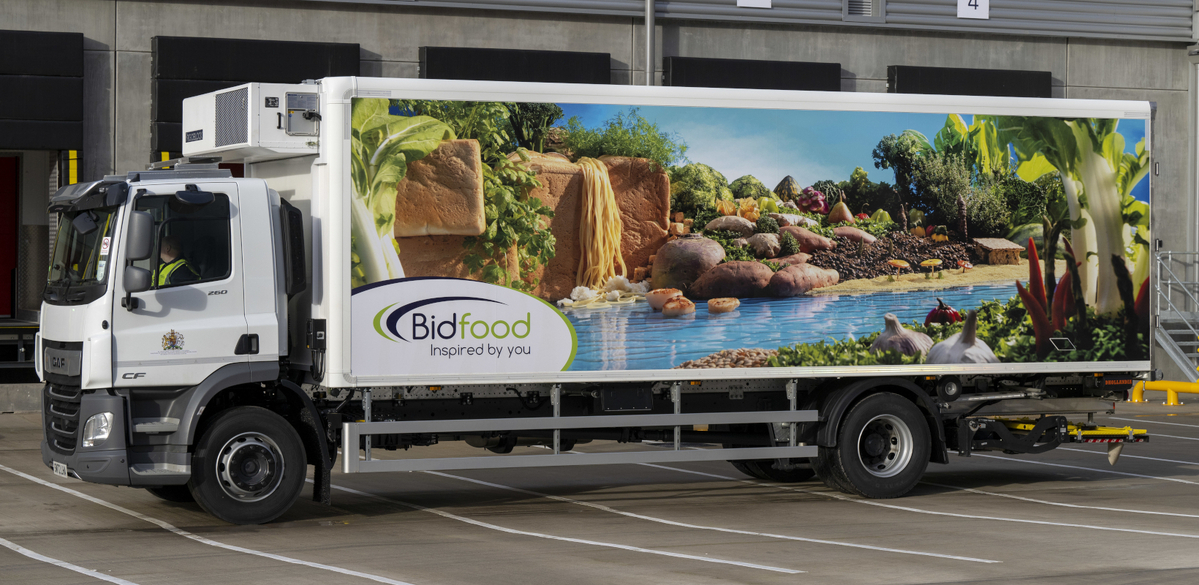Regeneration nation: why chefs and suppliers are farming’s eco warriors
From Jeremy Clarkson at Diddly Squat Farm to nationwide suppliers looking to serve eco-concious customers, regenerative farming and the production of food in an environmentally responsible way is on the rise
When Britain’s best-known farmer speaks, the media listens. So Jeremy Clarkson’s announcement last autumn that he is trialling regenerative farming techniques at Diddly Squat Farm in Oxfordshire was a definite milestone for the regenerative movement in terms of awareness.
At its simplest, the practice aims to produce food using methods that don’t negatively impact the environment and maintain soil quality and biodiversity. But the fact there are no absolute definitions or accreditations means hospitality operators could be forgiven for a certain amount of cynicism.
While there are a growing number of ideas, initiatives and products that associate themselves with the concept, perhaps another way to look at it is that operators can move at their own speed – and, crucially, that of their customers – when it comes to using regeneratively-farmed produce in their business.
Some have already embraced the opportunity wholeheartedly. Chef Tommy Banks serves produce from his family’s 160-acre farm at his three co-owned North Yorkshire venues: the Michelin-starred Black Swan at Oldstead and Roots restaurant and the Abbey Inn, both in York.
“It’s about having the information there for the people who want it” Tommy Banks
On the farm, the family has created wetland areas to promote biodiversity and, instead of commercial fertilisers, they use the farm’s own manure where possible. Banks says: “I’ve seen first-hand how it improves the biodiversity of the land and the wildlife and there’s also a huge nutritional benefit.”
“The two main animals that fit the regenerative model are cattle and sheep. With cattle, it’s about carcass balance. For every fillet, sirloin or ribeye steak, there’s lots of forequarter meat, braising meat or mince. The most popular dish at the Abbey Inn by a mile is the burger. It uses the cuts from our Dexter beef that we couldn’t cook as a steak.”
With sheep, rather than racing to get lambs to market as quickly as possible, Banks serves hogget and mutton from more mature animals. “Having a roast leg of hogget on a Sunday lunch menu is a good way to open the conversation about regenerative farming, as people often think hogget is pork,” he says. Hogget also delivers a good margin for the business while being a better-value option for guests.
At the start of 2024, the Banks’s restaurants served a Regenuary menu, featuring information about regenerative farming and a QR code linking to further reading. “It’s about having the information there for the people who want it,” says Banks.
Circular economy
Aled Evans, a Welsh beef and lamb producer at Rest Farm, Carmarthenshire, has embarked on a five-year plan to reduce reliance on artificial chemicals, using a range of regenerative farming methods.
Evans cites his relationship with brand Honest Burgers as a good example of how operators can work with suppliers “to improve the carbon footprint and standard of menus”. He adds: “We’ve hosted chefs from Honest Burgers to visit the farm to showcase the quality of PGI Welsh beef, boosting the awareness of where the food they are serving comes from and the natural processes through which it is produced.”
Sodexo Live!, which supplies hospitality and food at music and sporting events, has partnered with Full Circle Farms in West Sussex. Food waste from several Sodexo Live! venues is repurposed into compost and fertiliser to be used on the farm for growing fruit and vegetables using regenerative methods, which are then supplied back to Sodexo Live!
So far, more than three tonnes of organic produce, including cucumbers, kale, courgettes and onions, has been used to create salads, sides and vegan and vegetarian dishes at venues such as Brighton & Hove’s American Express Stadium (pictured top) and Ascot Racecourse.
Gemma Amor, executive chef at Ascot Racecourse, uses ingredients supplied from Full Circle Farms in dishes on both plant-based and standard menus. She says: “We regularly talk about our use of regenerative farmed produce in our sustainability messaging and when discussing our plant-based menus. We believe that organic produce that is pesticide- and herbicide-free has a richer and more intense flavour compared to conventionally grown produce. This is due to several contributing factors, such as soil health, slower growth rates and harvesting processes.
”For example, carrot shavings add a burst of colour and a fresh, crunchy sweetness to a dish, and the earthy, tangy flavours of beautifully coloured fresh beetroot, perfect for pickling and puréeing, is used in several dishes, such as salads or sandwiches or as an accompaniment in starters and mains.”
Grape minds
East Sussex-based sparkling wine producer Everflyht stopped using insecticides and synthetic fertilisers several years ago, instead feeding the soil and vines with compost produced on-site. Vineyard manager Luke Spalding says: “We try and run an organic model as best we can throughout the entire season, but sometimes, with the climate in the UK, that does create challenges.”
“I’m always worried about greenwashing, especially with regenerative, because there is so little guidance at the moment” Luke Spalding, Everflyht
While the move to more regenerative methods has seen the vineyard maintain its yields, its costs have increased due to the need to use expensive organic fertilisers. Everflyht customers include chef Simon Rogan and Young’s pubs and, says Spalding, its products compete on price with Champagne. “If the consumer enjoys Prosecco, it’s a harder battle, whereas it’s very easy to convert a Champagne drinker to an English sparkling wine drinker.”
Sounding a cautious note, he says: “I think we’re still trying to find our feet in terms of how the regenerative model fits with vineyards and orchards. I’m always worried about greenwashing, especially with regenerative, because there is so little guidance at the moment.”
Also emphasising the need to be cautious about claims is Matt Ryan, regeneration lead with Nestlé UK & Ireland. Globally, Nestlé aims to source 20% of its key ingredients from farmers using regenerative practices by 2025 and 50% by 2030. Dairy, coffee and cocoa are among the areas where the business is committing a huge investment programme.
Ryan says: “For a business that has made these commitments, and specifically uses terminology around regenerative agriculture, we’d like some sort of harmonised definition to ensure we’re held to account. We want it to be rigorous because otherwise the risk is that we don’t see the outcomes regenerative agriculture can potentially deliver.”
Ryan describes the prospect of caterers being able to source a range of Nestlé storecupboard lines from coffee to cooking sauce, made using regeneratively-farmed produce, as the “holy grail” – but also believes it’s unlikely to ever be a simple as buying a pack with a “regeneratively farmed” sticker or symbol on it. “It’s not that we will ever reach the finish line as there will always be more that can be done. This is a journey that farmers are on and a lot of them are only on the first rung of the ladder.”
He also urges operators to look for local sourcing options alongside branded products and to find a range of ways to communicate with customers. “Different customer age groups like to hear about different things. Older customers are keen to hear about how we’re supporting farmers, while younger consumers are much more interested in issues such as the climate crisis and biodiversity.”
Dr Laura Kirwan, sustainability lead at menu consultancy firm Nutritics, cites CGA and Bidfood research that shows 44% of consumers say sustainability is important in their choice of venue, and 25% would look at ethical or sustainable information on a menu.
“Working closely with regenerative farmers means that produce will be seasonal,” she says. “Creating bespoke, limited-time menu offerings will create excitement among guests, encourage them to visit and drive increased spend.”
Joe Evans, a non-executive director of food procurement company allmanhall, manages an estate in rural Herefordshire that is moving towards regenerative farming. He says: “In terms of food supply, I hope the societal and media debate continues to develop from what we eat to also look at how we produce it.
“We’ve become accustomed to being able to get whatever food we want, whenever we want it, regardless of season, and we have not been conditioned to question how it’s produced and the impact on the environment that has made its production possible. It’s in that ‘how’ that the future of sustainable food production lies.”
Bringing regenerative farming into the kitchen
As interest in the regenerative movement grows, more suppliers are exploring opportunities. Examples include:
- Levy UK + Ireland and QuornPro are co-sponsors of the Biohub, a regenerative agricultural project in North Yorkshire developed by RegenFarmCo. QuornPro is using the site to help educate its staff about innovative approaches to ingredient development and food production.
- Oat milk producer Glebe Farm collaborates with farmers on a range of regenerative practices, as well as keeping 150 acres of fields fallow. Ultimately, says Glebe Farm chief operating officer Tony Holmes: “Consumers’ choice of plant-based milks comes down to taste and health as the main reasons for selection. We’re always seeking to improve our practices further and understand how we can ensure our consumers can get the choices they want.”
- Cereal brand Weetabix operates the Weetabix Growers Group, a collective of environmentally aware farmers, and it is working with a group of farmers to evaluate new carbon reduction technologies, including regenerative agriculture.
- Spirits giant Diageo has launched regenerative agriculture programmes in Scotland and Mexico, focused on reducing the carbon emissions of farming barley and wheat for Scotch whisky and agave for tequila, while delivering additional benefits for the farmers.
Suppliers
Allmanhall www.allmanhall.co.uk
Diageo www.diageo.com
Everflyht www.everflyht.com
Glebe Farm www.glebefarmfoods.co.uk
Hybu Cig Cymru (Meat Promotion Wales) www.meatpromotion.wales
Levy UK + Ireland www.levy.co.uk
Nestlé UK & Ireland www.nestle.co.uk
Nutritics www.nutritics.com
Quorn Professionals www.quornfoodservice.co.uk
RegenFarmCo www.regenfarmco.com
Sodexo uk.sodexo.com/home
Weetabix www.weetabixfoodservice.co.uk



